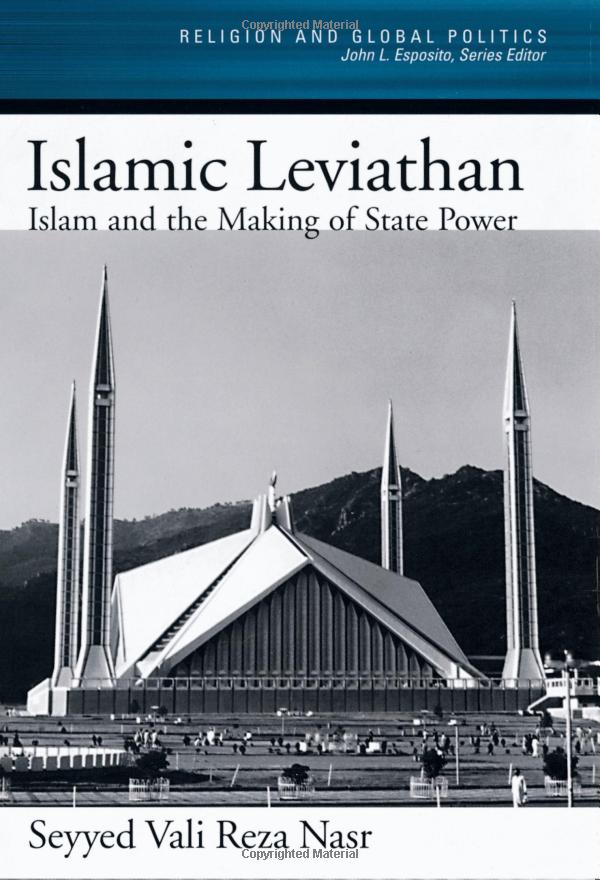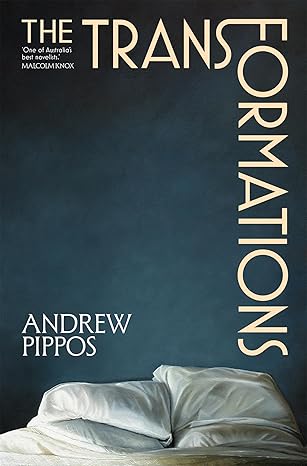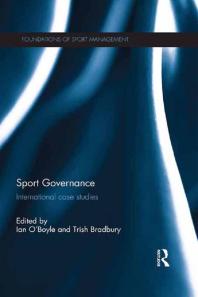In 1979 General Muhammad Zia ul-Haq, the military ruler of Pakistan, declared that Pakistan would become an Islamic state. Islamic values and norms would serve as the foundation of national identity, law, economy, and social relations, and would inspire all policy making. In 1980 Mahathir Muhammad, the new prime minister of Malaysia, introduced a similar broad-based plan to anchor state policy making in Islamic values, and to bring his country’s laws and economic practices in line with the teachings of Islam. Why did these rulers choose the path of “Islamization” for their countries? And how did one-time secular postcolonial states become the agents of Islamization and the harbinger of the “true” Islamic state? Malaysia and Pakistan have since the late 1970s–early 1980s followed a unique path to development that diverges from the experiences of other Third World states. In these two countries religious identity was integrated into state ideology to inform the goal and process of development with Islamic values. This undertaking has also presented a very different picture of the relation between Islam and politics in Muslim societies. In Malaysia and Pakistan, it has been state institutions rather than Islamist activists (those who advocate a political reading of Islam; also known as revivalists or fundamentalists) that have been the guardians of Islam and the defenders of its interests. This suggests a very different dynamic in the ebbs and flow of Islamic politics—in the least pointing to the importance of the state in the vicissitudes of this phenomenon. What to make of secular states that turn Islamic? What does such a transformation mean for the state as well as for Islamic politics? This book grapples with these questions. This is not a comprehensive account of Malaysia’s or Pakistan’s politics, nor does it cover all aspects of Islam’s role in their societies and politics, although the analytical narrative dwells on these issues considerably. This book is rather a social scientific inquiry into the phenomenon of secular postcolonial states becoming agents of Islamization, and more broadly how culture and religion serve the needs of state power and development. The analysis here relies on theoretical discussions in the social sciences of state behavior and the role of culture and religion therein. More important, it draws inferences from the cases under examination to make broader conclusions of interest to the disciplines. I have incurred many debts in researching and writing this book. Grants from the American Institute of Pakistan Studies and the Faculty Research Grant Fund of the University of San Diego facilitated field research in Pakistan and Malaysia between 1995 and 1997. Sabbatical leave from teaching, along with a Research and Writing Grant from the John D. and Catherine T. MacArthur Foundation, provided me with time to write. On Malaysia, the Institute Kajian Dasar (Institute of Policy Studies), Zainah Anwar, Osman Bakr, Abu Bakr Hashim, Khalid Ja`far, Muhammad Nur Manuty, Hassan Mardman, Chandra Muzaffar, Farish Noor, Fred von der Mehden, and Imtiyaz Yusuf greatly helped with the research for this project. On Pakistan, I benefited from the advice and assistance of Muhammad Afzal, Zafar Ishaq Ansar, Mushahid Husain, S. Faisal Imam, and Muhammad Suhayl Umar. I am also grateful to Mumtaz Ahmad and John L. Esposito for their support, wisdom, and many useful suggestions. I alone am responsible for all of the facts, their interpretation, and resultant conclusions that appear in the following pages.
چکیده فارسی
در سال 1979 ژنرال محمد ضیاء الحق، حاکم نظامی پاکستان اعلام کرد که پاکستان به یک کشور اسلامی تبدیل خواهد شد. ارزش ها و هنجارهای اسلامی به عنوان شالوده هویت ملی، قانون، اقتصاد و اجتماعی عمل خواهد کرد روابط، و الهام بخش همه سیاست گذاری ها خواهد بود. در سال 1980 ماهاتیر محمد، نخست وزیر جدید مالزی، طرح گسترده ای مشابه را ارائه کرد سیاست گذاری دولت را بر ارزش های اسلامی تثبیت کند و قوانین کشورش را به اجرا بگذارد و اقدامات اقتصادی در راستای تعالیم اسلام. چرا اینها را کرد حاکمان راه «اسلامی شدن» را برای کشورهای خود انتخاب می کنند؟ و چگونه شد دولتهای سکولار پسااستعماری، عامل اسلامیسازی میشوند و منادی دولت «حقیقی» اسلامی؟ مالزی و پاکستان از اواخر دهه 1970 تا اوایل دهه 1980 به دنبال الف مسیری منحصر به فرد برای توسعه که از تجربیات سومین دیگر فاصله دارد کشورهای جهان در این دو کشور هویت دینی در دولت ادغام شد ایدئولوژی برای آگاه سازی هدف و روند توسعه با ارزش های اسلامی. این تعهد همچنین تصویر بسیار متفاوتی از رابطه بین این دو ارائه کرده است اسلام و سیاست در جوامع مسلمان. در مالزی و پاکستان هم دارد نهادهای دولتی بودند تا فعالان اسلام گرا (کسانی که طرفدار یک امر سیاسی هستند قرائت اسلام; که به احیاگران یا اصولگرایان نیز معروفند) که دارند حافظ اسلام و حافظ منافع آن بوده اند. این نشان می دهد که الف پویایی بسیار متفاوت در نزول و جریان سیاست اسلامی - حداقل با اشاره به اهمیت دولت در فراز و نشیب این پدیده. از دولت های سکولار که اسلامی می شوند چه باید کرد؟ چنین تحولی چه می کند یعنی برای دولت و همچنین برای سیاست اسلامی؟ این کتاب با این سوالات دست و پنجه نرم می کند. این یک حساب جامع نیست سیاست مالزی یا پاکستان، و نه تمام جنبه های آن را پوشش می دهد نقش اسلام در جوامع و سیاست آنها اگرچه روایتی تحلیلی است به طور قابل توجهی بر روی این موضوعات تمرکز می کند. این کتاب بیشتر یک تحقیق علمی اجتماعی است به پدیده تبدیل شدن دولت های پسااستعماری سکولار به عوامل اسلامیسازی و بهطور گستردهتر اینکه چگونه فرهنگ و دین در خدمت نیازهای مردم است قدرت و توسعه دولتی تحلیل در اینجا متکی بر مباحث نظری است در علوم اجتماعی رفتار دولتی و نقش فرهنگ و مذهب در آن مهمتر از آن، از موارد مورد بررسی استنباط می کند نتیجه گیری های گسترده تر مورد علاقه رشته ها. در تحقیق و نگارش این کتاب بدهی های زیادی را متحمل شده ام. کمک های مالی از موسسه آمریکایی مطالعات پاکستان و تحقیقات دانشکده کمک مالی دانشگاه سن دیگو تحقیقات میدانی را در پاکستان تسهیل کرد و مالزی بین سالهای 1995 و 1997. مرخصی تعطیل از تدریس، همراه با کمک هزینه تحقیق و نگارش از جان دی و کاترین تی. بنیاد مک آرتور، زمانی را برای نوشتن در اختیار من گذاشت. در مالزی، موسسه کاجیان داسار (موسسه مطالعات سیاست)، زینه انور، عثمان بکر، ابوبکر هاشم، خالد جعفر، محمد نور منوطی، حسن مردمان، چاندرا مظفر، فریش نور، فرد فون درمهدن و امتیاز یوسف کمک زیادی به تحقیقات این پروژه کرد. در مورد پاکستان من سود بردم از نصیحت و کمک محمد افضل، ظفر اسحاق انصار، مشاهد حسین، امام فیصل و محمد سهیل عمر. من هم هستم از ممتاز احمد و جان ال. اسپوزیتو برای حمایت و خردشان سپاسگزاریم، و بسیاری از پیشنهادات مفید من به تنهایی مسئول تمام حقایق، آنها هستم تفسیر، و نتیجه گیری های حاصل که در صفحات بعدی ظاهر می شود.
ادامه ...
بستن ...
Author(s): Seyyed Vali Reza Nasr Series: Religion and global politics Publisher: Oxford University Press, Year: 2001 ISBN: 9780195144260,0-19-514426-0 Pages : 242 Language : English Size : 901 Kb Extension : pdf
ادامه ...
بستن ...









![Our mission to the court of Marocco [Morocco] in 1880, under Sir John Drummond Hay - pdf Our mission to the court of Marocco [Morocco] in 1880, under Sir John Drummond Hay - pdf](https://dl.libsan.ir/images/1/12/112108724_694b9e9769312.jpg)
